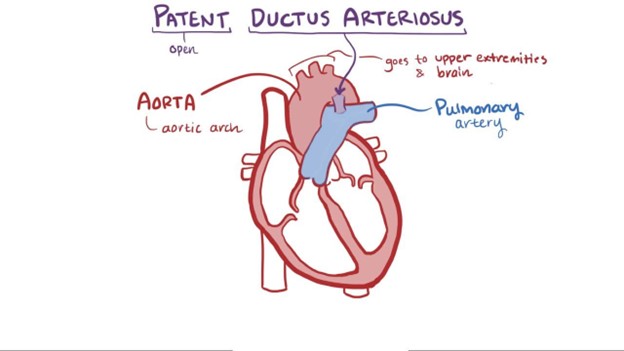A nurse is caring for a child who has acute gastroenteritis but is able to tolerate oral fluids. The nurse should anticipate providing which of the following types of fluid?
Broth
Diluted apple juice
Oral rehydration solution
Water
The Correct Answer is C
A. Broth: While broth can be a source of fluids, it does not contain the appropriate balance of electrolytes needed to rehydrate the body effectively. Gastroenteritis can cause significant fluid and electrolyte loss, so an oral rehydration solution (ORS) with the right proportions of salts and sugars is essential to replace these losses adequately.
B. Diluted apple juice: Diluted apple juice may not provide the proper electrolyte balance needed for rehydration in cases of gastroenteritis. In fact, apple juice is not recommended during episodes of acute gastroenteritis, as it can worsen diarrhea due to its high sugar content. This can lead to further dehydration and discomfort.
C. Oral rehydration solution (ORS): This is the correct answer. Oral rehydration solution is specifically designed to replace lost fluids and electrolytes in cases of gastroenteritis. It contains the right balance of salts and sugars to facilitate effective absorption in the intestines and help rehydrate the body. ORS is the recommended fluid for managing dehydration caused by gastroenteritis in children.
D. Water: While water is essential for hydration, it is not enough to effectively treat dehydration caused by gastroenteritis. Plain water does not contain the necessary electrolytes like sodium, potassium, and chloride, which are lost during episodes of diarrhea and vomiting. Giving water alone may not adequately rehydrate the child and could potentially worsen the dehydration.
Nursing Test Bank
Naxlex Comprehensive Predictor Exams
Related Questions
Correct Answer is D
Explanation
The nurse's priority assessment finding in an adolescent who experienced blunt trauma to the abdomen is low blood pressure (hypotension). Hypotension could indicate significant internal bleeding or hemorrhage, which is a life-threatening condition and requires immediate attention. The decreased blood pressure may be a sign of shock, and prompt intervention is needed to stabilize the client's condition and prevent further deterioration.
While all the other findings (respiratory rate, abdominal pain, and heart rate) are important and should be assessed and monitored, blood pressure is the most critical in this situation due to its potential association with severe internal injuries and the risk of hypovolemic shock.
Correct Answer is B
Explanation
A patent ductus arteriosus (PDA) is a congenital heart defect associated with increased pulmonary blood flow. In normal fetal circulation, the ductus arteriosus allows blood to bypass the lungs since the baby receives oxygen from the mother's placenta. After birth, the ductus arteriosus should close, redirecting blood flow to the lungs for oxygenation. However, in some infants with PDA, the ductus arteriosus remains open, causing an abnormal connection between the aorta and the pulmonary artery. As a result, oxygenated blood from the aorta flows back into the pulmonary artery, increasing the workload on the lungs.
The other options are as follows:
A. Coarctation of the aorta - Coarctation of the aorta is a narrowing of the aorta, which obstructs blood flow and leads to increased blood pressure in the upper body and reduced blood flow to the lower body.
C. Tetralogy of Fallot - Tetralogy of Fallot is a combination of four heart defects that results in decreased pulmonary blood flow due to a ventricular septal defect (VSD), overriding aorta, pulmonary stenosis, and right ventricular hypertrophy.
D. Tricuspid atresia - Tricuspid atresia is a congenital heart defect where the tricuspid valve does not develop correctly, resulting in an absent or abnormal tricuspid valve. This defect prevents blood flow from the right atrium to the right ventricle and, therefore, reduces pulmonary blood flow.

Whether you are a student looking to ace your exams or a practicing nurse seeking to enhance your expertise , our nursing education contents will empower you with the confidence and competence to make a difference in the lives of patients and become a respected leader in the healthcare field.
Visit Naxlex, invest in your future and unlock endless possibilities with our unparalleled nursing education contents today
Report Wrong Answer on the Current Question
Do you disagree with the answer? If yes, what is your expected answer? Explain.
Kindly be descriptive with the issue you are facing.
